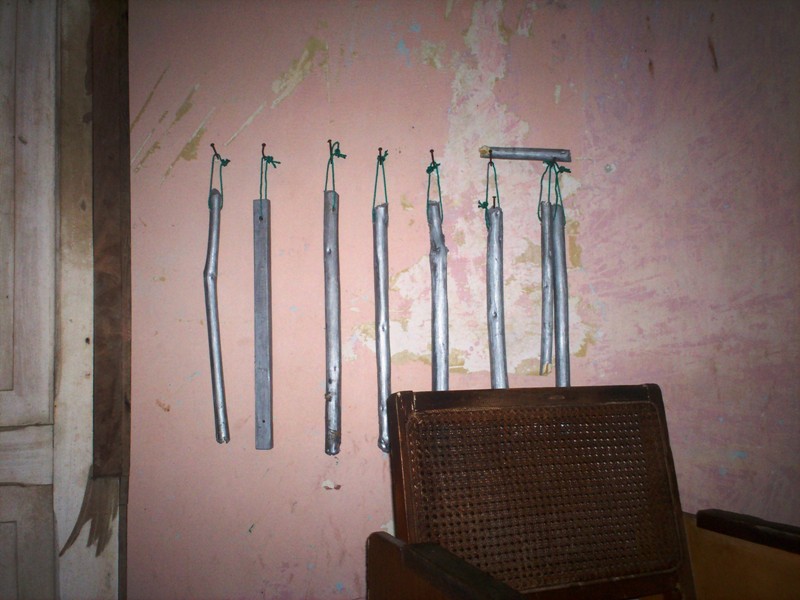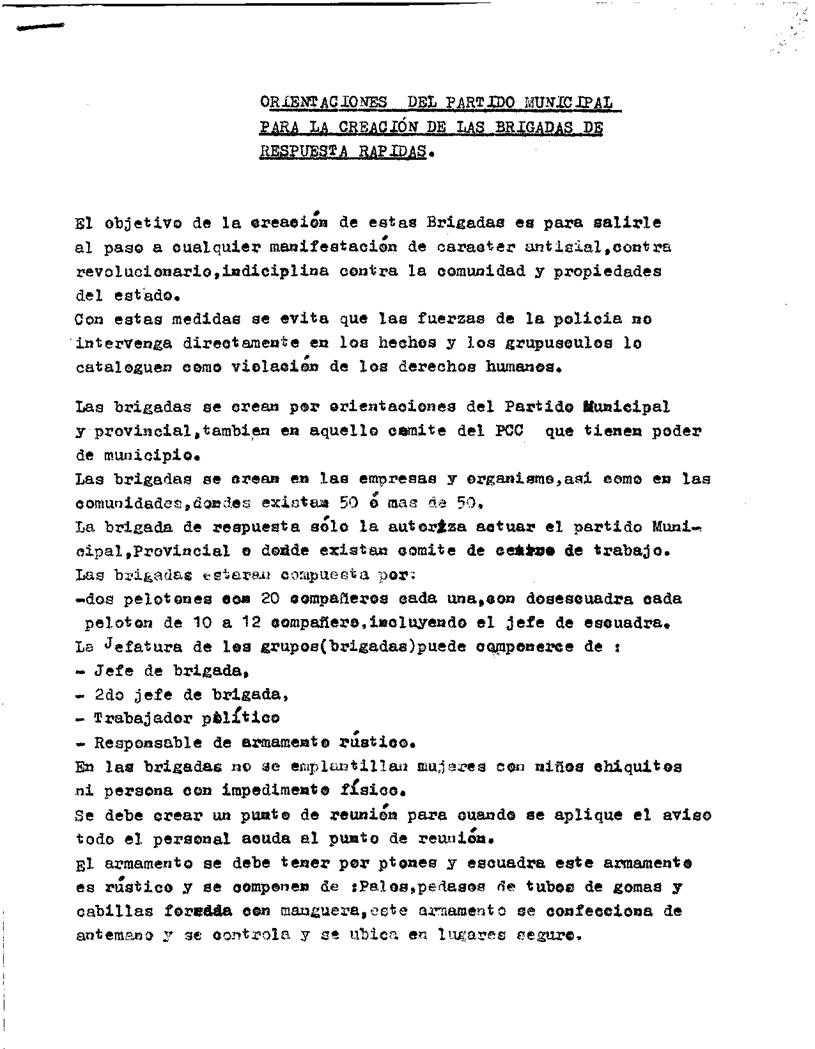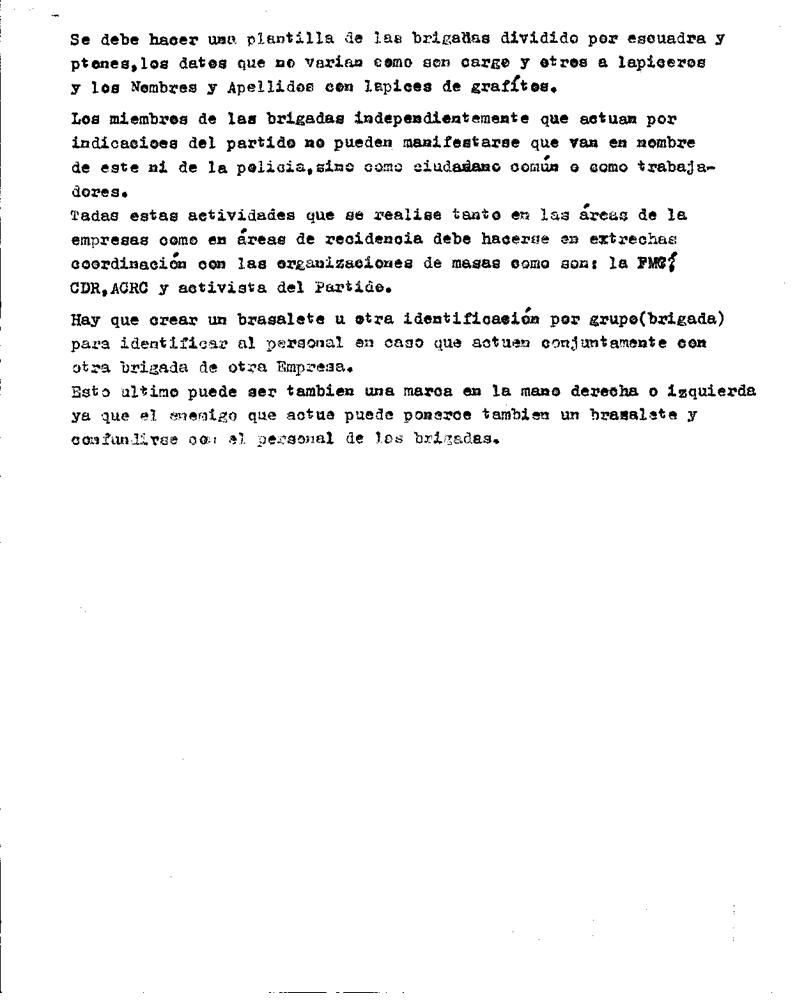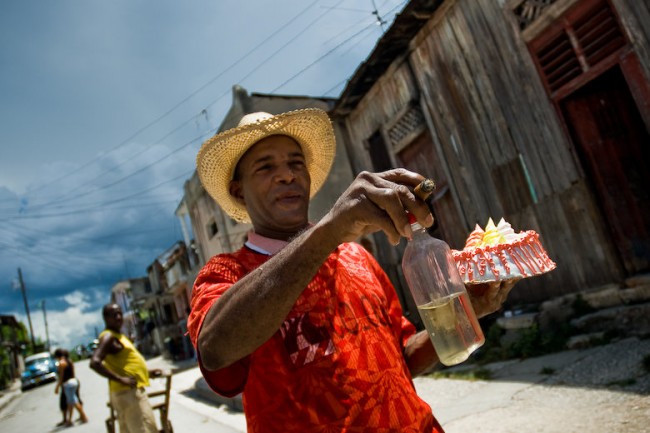(This is the story of a trip that I never imagined in my own country. I thank all those who made this experience possible, but I thank much more those who tried to prevent it.)
Victor, the silent dean of Art Institute (ISA), next to the driver, without saying a single word; Danae and Rudy, leaders of the Student Union (FEU), to my right and behind me; Andy, also with the FEU, the only reasonable one, to my left. Miguel, the driver, mute at the helm. The car is driving all along the Malecon, at dawn.
I am talking to them, at least with the boys, who dare to speak. Danae, boastfully daring to speak says that he’s doing “the right thing to defend the Revolution.” Rudy, the only one who I’d spoken to before, tells me, when I ask him, that his name is Osvaldo. Why lie? All three are from Santiago, and Danae and Rudy study acting. Fifteen days earlier I had visited his class in search of actors with the permission of Omar Ali, the professor. They had acted some scenes from “Dream of a Summer’s Night”: Danae was dry and didn’t know any of his lines–it’s well known that he’s not at ISA for artistic reasons. I can’t remember Rudy from that day. Andy studies piano and was the only one who refused to assault me, faced with so many men going back and forth between violence and indifference. But none of these pitiful student representatives were among the more than 150 young people who went on a hunger strike at ISA in October of 2009.
That night–Thursday, May 26–I arrived at almost eleven o’clock at night at the entrance at the bottom of ISA, at Novena and 120th, that gives directly onto the courtyard. I noticed the guards of the different stairs of the residence were on full alert, despite the hour. And among them there wasn’t a single woman, contrary to usual. As I continued along the hallway, they would wave to accomplices. At the entrance to my stairway there was, coincidentally, the most robust of all, whom I knew by sight. “Your ID card.” I showed it to him. “You have to go see Victor, the dean.” Without looking me in the face he finished with, “You can’t go in.”
In Victor’s office was my trunk and two more bags with all my belongings, collected and held without my presence; missing nothing. The poor man, gentle in his manner, told me to collect everything, “There’s a car waiting to take you to the terminal and a ticket to Camagüey on the first bus.”
“But yesterday you told me that I had 48 hours to leave and that expires tomorrow afternoon,” I say.
“You have to go,” he answers.
Behind him came three leaders of the FEU, two guards and Miguel, the driver; there wasn’t a single woman among them. I picked up my things without any hurry and talked a lot with the boys of the FEU called together to throw me out. “They promised me a paper here tomorrow morning. I have to stay to collect it.”
Victor makes a phone call to consult on the situation, not saying who he is speaking to but answer is clear and repetitive: “You have to go.”
Andy and Danae tried to explain why my case was so sudden, Andy intelligently, Danae repeating slogans. “Look, this has been being analyzed for a while, we know of your problems in Santiago and Santa Clara, there’s no other alternative. And you have our full friendship!” said Danae. “Me, I respect your ideas, every person is different and think what you like, but you can’t do anything about this,” said Andy.
“What students in the FEU did you consult with about this? Can we go and ask them,” and they look to see how to take control again. “We are the FEU, we are the leaders, there’s no way to meet with anyone now, man,” Danae replies.
I finished getting my things and among us we carried everything to the car and got in. It’s a red van that I knew from before: I rode in it once when the ISA loaned it to me once to find several artists to participate in the student discussion forum. Now it’s the car in which I will complete my punishment.
From a distance I see a classmate looking at the scene, hiding behind a corner. I move away from the car and say to them, very loudly, “Please, take my things and take care of them; I don’t want to get in there. And if I do, it’s because you are forcing me. I will not resist, but I’m not going to go voluntarily.” I put my hands on my neck and they all burst out. Danae and Victor go around me and seem tense, like they’re looking where to grab me; the driver says don’t sweat it, he wants to go sleep; Rudy jokes; Andy warns me not to complicate things…
I don’t get in and when Danae is at the point of getting violent, and looks at Victor waiting for the order, I take out my cell phone and punch in a number. “Any force used against me is a kidnapping, and there are witnesses,” I declare.
Chaos. The dean loses his composure and also takes out his cell phone to ask for instructions. The driver remains silent and sits on a wall. The guards remain silent and leave. Andy keeps trying to convince me it’s for the better. Victor, alternately, gives me successive ultimatums and talks on the phone; it seems in the end he runs out of minutes because he goes into his office and keeps talking. The leaders of the FEU, lacking initiative, go after him.
I’ve been sending alarm messages, and some fellow students come down to see what’s happening or call my mobile. I sent a text message to Gisselle Candia, from my neighborhood and class, president of the FEU on my own faculty, and a very good friend for a long time; she’s sleeping in her room, two minutes from where this is going on, but doesn’t come down or call.
To those who do call or come down, I tell them, “Danae and the dean are the ones who are willing to hit me: record those names, please.” Where I am I can sense the discussion in Victor’s office: Andy the student who plays the piano shows, “I’m not going to do it. I’m not going to participate in this, no.” Danae is upset because he heard me repeat his name on the phone. “Who told you I was going to hit you? Who told you that?”
It’s after 1:45 AM. A young guard comes near to negotiate, but the guy with the bushy mustache who’s watching the stairs calls emphatically calls, to get away from me. Victor gets out with a determined face and the guys behind him. Victor tries one last trick: he gets in the car and calmly calls me to sit by his side and talk. “I’m not a little kid, pal, come and talk here, outside, but I’m not getting in of my own free will. I’m here, come and get me.”
Victor gets out of the car and turns while Danae and Andy are still talking. It’s decided, one to the other: “Let’s go, let’s go.” Victor takes me by the left wrist, Danae by the back, some of the other two by the right arm, and they move forward to put me in the car, in the back seat. It’s synchornized like in the good cop shows. The directors of the FEU get in: Rudy at my back, Andy on my left and Danae on my right; Victor next to the driver. My cells phone doesn’t stop ringing, unstoppable. Faced with the worry of the boys about what I’m going to say about them, I ask them, “When I write about this, I will say that you grabbed me and put me in the car without doing visible physical damage to me, but against my well, does that seem good?” They fall silent. The car continues down Fifth Avenue, through the tunnel, and all along the Malecon, at dawn.
May 30 2011
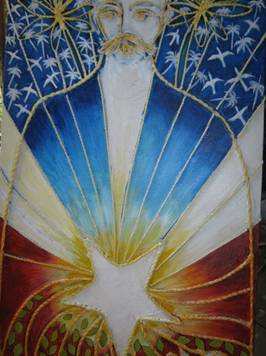 Again my friend Mari Carmen (arsenal of fresh anecdotes), she tells me another story, as unusual as it may seem, is so real that it hurts to tell it.
Again my friend Mari Carmen (arsenal of fresh anecdotes), she tells me another story, as unusual as it may seem, is so real that it hurts to tell it.
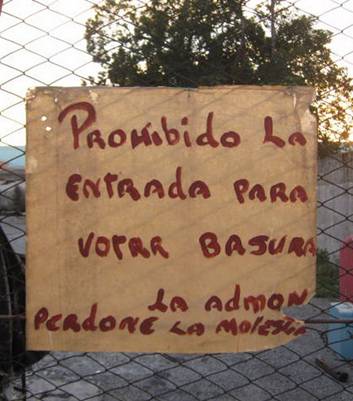
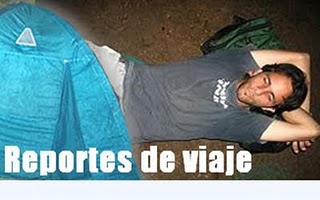
 Cuban television debuts at its usual time of 9:00 in the evening, on the Cubavision channel, a telenovela–soap opera–titled “Under the Same Sun,” which is already generating a buzz. Although they haven’t provided much information about it, it’s said to consist of three stories. In the first one being aired, are the taboos and intolerance that still exist in society against homosexuality, among others. Some time ago an interdisciplinary team, taking advantage of the reach of this mass media, television, and with the support of the press, began influencing people with a different view of human sexual diversity. I celebrate the intention and the task, even more because a long time ago international organizations, such as the United Nations, and coalitions of countries, such as the European Union, jumped the barrier of segregation for sexual preferences and established legal mechanisms to prevent discriminatory practices in this and other aspects. We perceive in our country that perception is gradually changing in this regard.
Cuban television debuts at its usual time of 9:00 in the evening, on the Cubavision channel, a telenovela–soap opera–titled “Under the Same Sun,” which is already generating a buzz. Although they haven’t provided much information about it, it’s said to consist of three stories. In the first one being aired, are the taboos and intolerance that still exist in society against homosexuality, among others. Some time ago an interdisciplinary team, taking advantage of the reach of this mass media, television, and with the support of the press, began influencing people with a different view of human sexual diversity. I celebrate the intention and the task, even more because a long time ago international organizations, such as the United Nations, and coalitions of countries, such as the European Union, jumped the barrier of segregation for sexual preferences and established legal mechanisms to prevent discriminatory practices in this and other aspects. We perceive in our country that perception is gradually changing in this regard.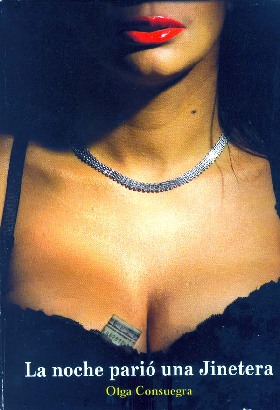 When Roman, a tall, skinny guantanamero, who has spent three years living clandestinely in Havana, feels a burning sexual desire, he plans his binge.
When Roman, a tall, skinny guantanamero, who has spent three years living clandestinely in Havana, feels a burning sexual desire, he plans his binge.